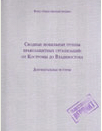

Brief overview of human rights violations against groups of activists in St. Petersburg and Penza
In October and November 2017, officers of the Penza branch of the Russian Federal Security Service (FSB) arrested six young men, aged twenty to twenty-seven. Some of the men were antifascist and anarchist activists. Arman Sagynbayev, Dmitry Pchelintsev, Ilya Shakursky, Yegor Zorin, Vasily Kuksov, and Andrei Chernov were jailed in the Penza Remand Prison. In December 2017, Zorin was transferred to house arrest, while the other men stayed in the remand prison. In January 2018, Ilya Kapustin, Viktor Filinkov, and Igor Shishkin were apprehended in St. Petersburg. All three men were severely tortured during their first days in FSB custody. Kapustin was released and identified as a witness in the case. Filinkov and Shishkin were named as defendants in the so-called Penza case and were sent to Remand Prison No. 3 in St. Petersburg, where they are currently in custody. According to federal criminal investigators, the accused men were members of a terrorist group known as The Network (in Russian, Set'), which was planning to overthrow the Russian government. The investigators have claimed approximately twenty young men from three Russian cities and, presumably, the Republic of Belarus, were involved in The Network. The young men have been charged with violating Article 205.4 of the Russian Federal Criminal Code, i.e., "organization of and involvement in a terrorist group." The Network never engaged in any public actions. All that is known is that the accused enjoyed playing airsoft and role-playing games, practiced surviving in rugged conditions, and went on hikes.
More >Crackdown on civil society in Russia
In the past few years, the Russian Federation has adopted a number of laws significantly restricting fundamental rights and freedoms. Some of these new laws undermine the guarantees of the right to freedom of association-in particular, by introducing concepts such as 'non-profit organizations performing the functions of a foreign agent' and 'undesirable international and foreign non-governmental organizations'. Being branded a 'foreign agent' or 'undesirable organization' leads to substantial restrictions or, in certain cases, a total ban on activities, heavy fines and potential criminal charges.
More >49th session of the UN Committee against Torture Consideration of the 5th Russian periodic report NGOs hearings
Intervention by Natalia Taubina, Public Verdict Foundation: "I would like to bring your attention to the fact that over the course of the reporting period in the Russian Federation several reforms were initiated: Interior Ministry, investigative bodies, the penal system, reform in military, and although at the moment reforms continue, intermediate results seem to be possible".
More >The Case of Mikhail Kosenko: Experts Have Doubts
Aside from participation in "mass riots", Mikhail Kosenko is being charged with the use of violence endangering the life or health of a representative of authority ( Article 318, Section 2, of the Criminal Code). However, the evidence gathered by the investigation is extremely weak. All the video recording shows is that Kosenko held the police officer by the hand without landing any blows or doing anything dangerous.
More >Human Rights Organizations Set Up Joint Co-ordinating Centre
Human rights organizations have created a Joint Headquarters to provide legal assistance to citizens taking part in the protests against the falsification of the State Duma elections.
More >Law-enforcement bodies VS. Civil society
Activity of the Public Verdict Foundation in 2006
Crisis of the Law Enforcement System in Russia. Statement of Problem and Recommendations to the International Actors.
Since the early nineties comprehensive reform of the public administration have taken place. Law enforcement system and particularly the penitentiary have been also affected by this process. However complete and consistent reform of the law enforcement sphere has not occurred.Substantive number of organization and functioning principles of the Soviet system remained rooted whiting the law enforcement, even though such principles are inadequate to the current social and economical realities. In addition, poor finical support of the law enforcement in the nineties led to significant decrease of professional capacity of the law enforcement bodies and to a major rise in corruption. More >






